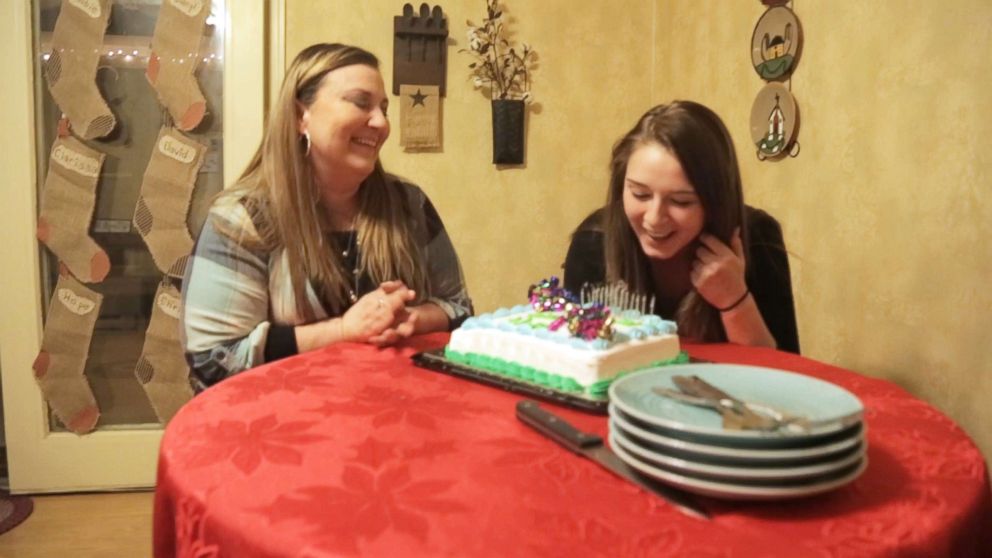Finding Hope: A young woman's journey back from heroin addiction
Hope Steele survived opiate overdose with the support of her mother, a nurse.
— -- Hope Steele wasn’t sure she would live to see her 21st birthday.
Last year, Steele overdosed on heroin three times, she said, and in her home state of West Virginia, she was far from alone. West Virginia has the highest drug overdose death rate in the United States according to the Centers for Disease Control and Prevention. An estimated 91 Americans die every day from opioid overdoses, and more than half a million people died of a drug overdose from 2000 to 2015, according to the CDC.
As she blew out the candles on her cake Dec. 7, Steele, who began using heroin in 2015, reflected on how many of her friends did not reach that milestone birthday.
“Out of the group of my friends, I’m pretty much the only one left to celebrate. At least 14 passed away in [the past] two years,” Steele told ABC News.

When Steele overdosed on heroin for the first time in October of last year, she said emergency paramedics told her that if they had arrived just minutes later, she would have been dead. She said paramedics injected her with Narcan, an opiate antidote, and took her to the medical center in Martinsburg, West Virginia, where her mother worked as a nurse in the emergency room. Their relationship had been strained, but that night changed things, she said.
“She ended up working that night and I feel like it was for a reason,” said Steele.
Because of patient confidentiality concerns, Steele's mother, Cheryl Festerman, said she was initially asked to wait just outside of her daughter's door.
“Being a nurse just went out the door. I was just her mother then,” Festerman told ABC News.
“I heard my mom screaming for me. Just hearing her voice like that, I’ve never heard her like that,” said Steele.
Steele said she discovered in that moment how much her mother cared for her.
“She does love me. She is there for me. She right behind me, all the time. I feel like she’s never going to let go,” said Steele.
Steele would go on to overdose two more times in the span of a week in the fall of 2016, she said, but with her mother's and doctor's support, she has been able to get clean.
In February, she began taking buprenorphine, a prescription opiate that is used to treat addiction. Buprenorphine can be used in medication-assisted treatment for heroin addiction, according to the Substance Abuse and Mental Health Services Administration. The medication, combined with counseling and behavioral therapy, can help people beat addiction.
In addition to her mother’s support, Steele received medical guidance from Dr. Brandt Williamson, a doctor in the emergency room in Martinsburg who advocated for the drug as part of her longer-term treatment plan.
“Scientifically, we’re finding that the problem likely is best managed with an opioid to try to help get people out of the problem of addiction,” Williamson told ABC News.
Williamson said even though it is also an opiate, buprenorphine can help get patients on track to eventually stop using drugs altogether.
“People can actually take this medication and be quite functional in society. I look at it as a tool to get people back on the road to get counseling, and hopefully to get off narcotics at some point completely,” Williamson added.
For Steele, it helped jump start the road to recovery.
"It helped my cravings go away. It was one of the biggest blockers I could have. It distracted me so that I didn’t always think about heroin," she said.
Steele said she stopped taking buprenorphine in June of this year. By the time her 21st birthday came around, she said she had been clean more than a year. She hopes her story will inspire other young people to give up heroin, too.
“I hope that somebody can look at me and think, ‘If she can overcome it, I can overcome it,” said Steele.




